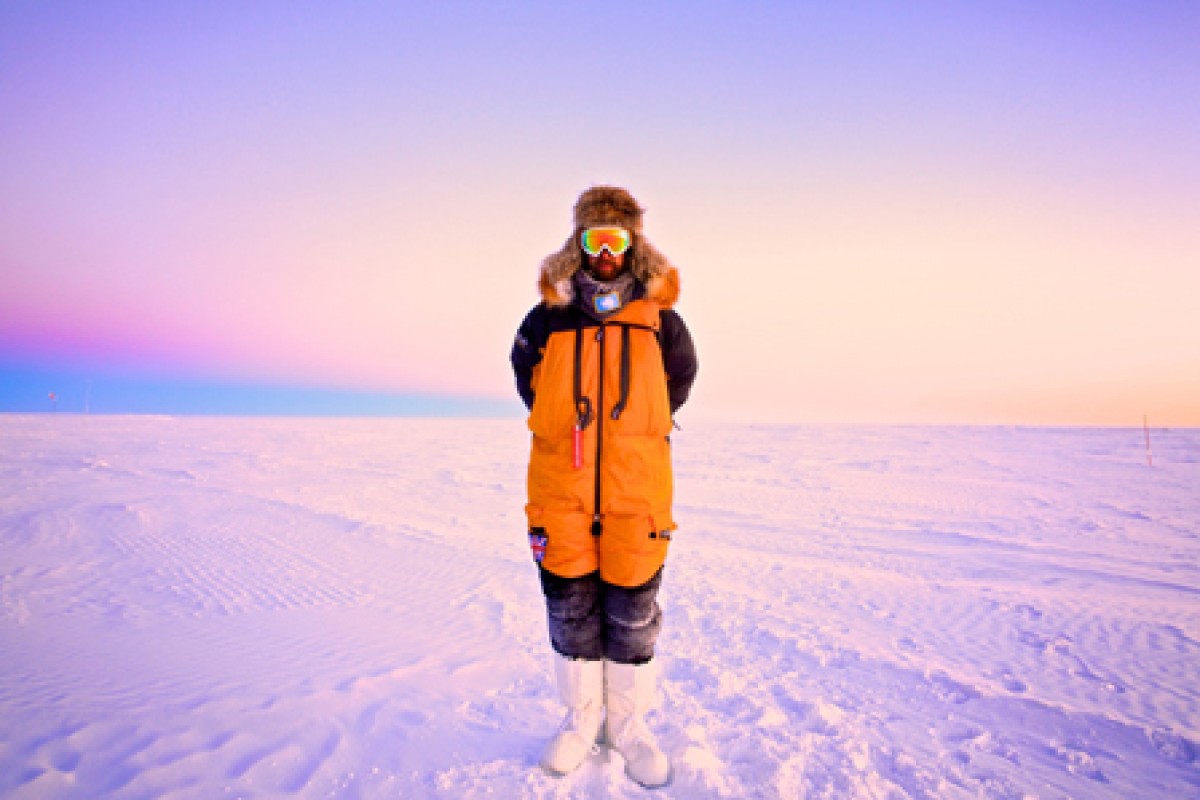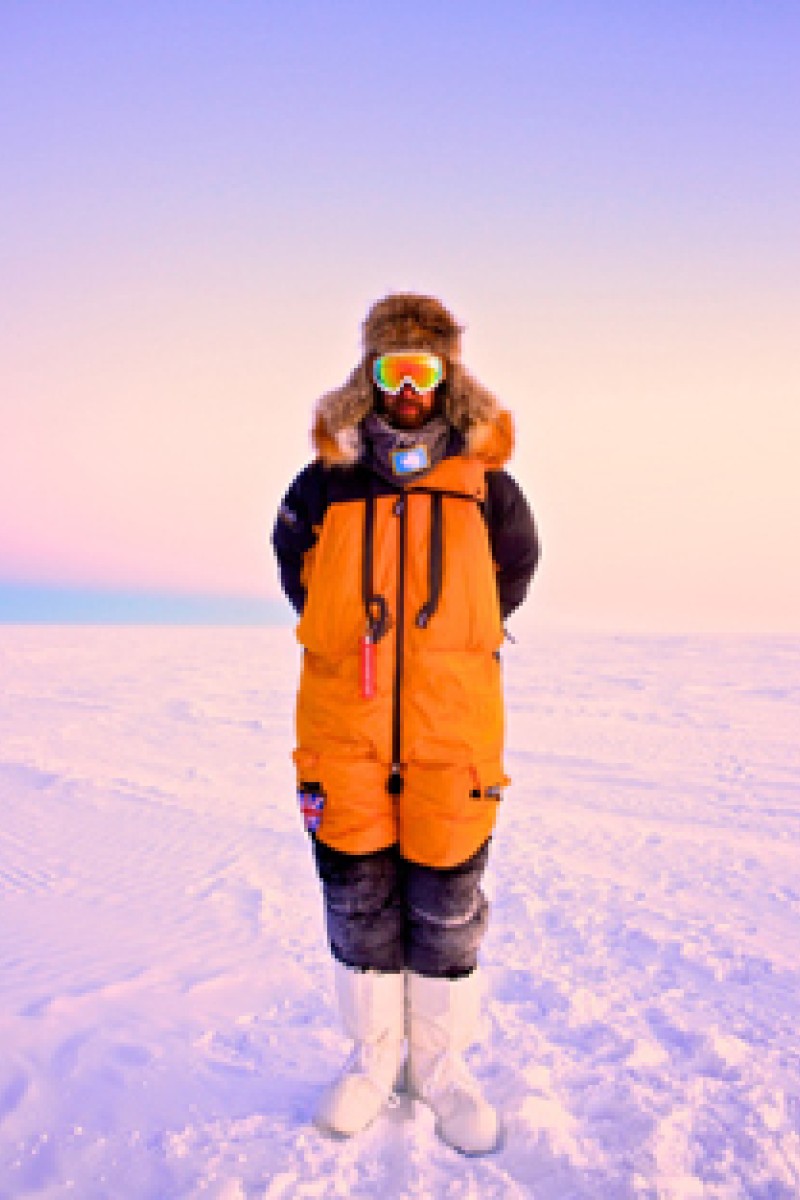 Alexander Kumar and the vast Antarctica
Alexander Kumar and the vast AntarcticaBut this is where Kumar headed last February. The European Space Agency sent him on a nine-month stint at the area's Concordia Station. His mission: to examine what it would take to get a human to Mars.
Fresh off the ice last month, the scientist shared his experiences in the cold white world of Antarctica with students at Island School.
"Antarctica in winter can throw anything at you," says Kumar. "You can prepare yourself. But in the end, you have to improvise. Because whatever happens, happens."
Once the last plane has left Concordia, it is impossible to leave the base until mid-November, even if there are emergencies. Kumar likens the conditions to being locked in a hotel with 12 strangers for a long period. "We have to be completely self-sufficient," he says.
The 13-member crew was made up of scientists with different interests from glaciers to galaxies, mechanics, a plumber and a chef. Each worked independently, but they also helped one another.
For example, Kumar ran tests on nine of his colleagues to study their physiology and psychology, while he also helped the glaciologist set up equipment. If anything at the station failed - just as the washing machine did - the crew had to fix it. Sometimes they had to go online to find a solution.
Kumar monitored sleep patterns by recording the brain activity of his sleeping crewmates.
Under such conditions, it was impossible to avoid conflicts. Kumar says he learned how to overcome "social crevasses" and "build bridges that collapsed". "At the end of the day that person is not going anywhere for months and neither are you," he notes.
There are no fresh supplies in Antarctica. All meals are prepared from canned, tinned, dried and pre-packaged ingredients.
"Imagine going to an Italian restaurant every day for a year, it becomes tiring," says Kumar. "But Antarctica is not so much about living as surviving."
Every winter the sun stays below the horizon for three months. Kumar says the body's clock struggles to adjust. "It gets to a point you don't know where you are, what time it is," he recalls. "It takes about half an hour for your mind to start, like a cold engine in winter. You feel slow." By the time the colours return, "your fuel tank is near zero".
So what does isolation, complete darkness and cold do to your brain?
"Generally it turns into mush," says Kumar.
"On the ice, it can be frustrating," he adds. "You can lose your patience and wish you were going home. Sometimes you feel lonely; other times you feel very insignificant and small, and even out of this world."
Mountaineers and submarine crews have described similar effects.
He says everyone at the station failed in some ways. "That's natural. Humans are not 100 per cent perfect. Nor are astronauts."
The most important thing is to find ways to keep the mind sharp and focused. Photography, writing, and reading helped Kumar stay grounded. "You have to be stronger in the mind than body," he explains. "And a busy mind is a healthy mind."
Kumar thinks a manned mission to Mars could happen. "It is not past the point of human endurance," he says. "The question is: why would we go? And should we?"
It's an ethical dilemma that is still open for debate. He points out that we might contaminate space and Earth during such an ambitious journey.
"Besides, there are so many things on Planet Earth that I would like to devote my life to, such as tropical diseases," he says. "Would it make a difference if we poured [the costs of a mission to Mars] into curing malaria?"
Kumar will depart for the Antarctic once again on December 27. He will study six adventurers who will re-enact Ernest Shackleton's historic 1914 boat voyage from Elephant Island to South Georgia and back using contemporary tools.
The Concordia station where Kumar called home for nine months
